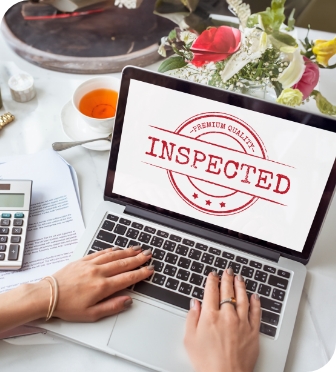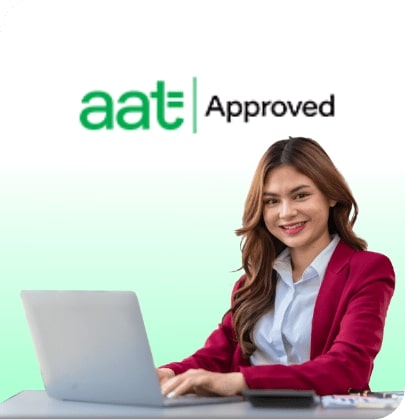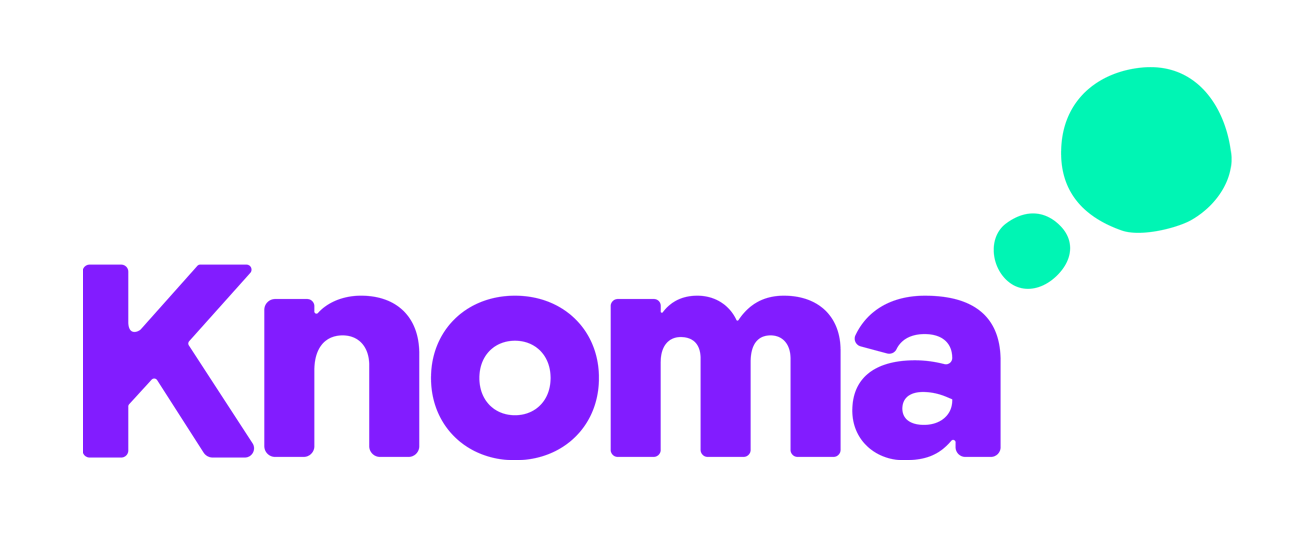AAT Bookkeeping Courses
Do you want your future career to be in bookkeeping? At Gold Edge we are specialist in multiple pathway learning ensuring all learners have an equal opportunity to succeed.
Bookkeeping is an excellent qualification if you want to be self-employed running your own bookkeeping practice. Likewise, if you want to be employed in a bookkeeping role, this qualification is perfect.
Study in a relaxed stress-free, successful way to kick start your future.
Why choose e-Careers
- Gold Edge Training is a leading, AAT accredited education provider renowned for the high-achievement of AAT Bookkeeping and Accounting students nationwide.
- Gold Edge Training has been nominated for multiple AAT awards for distance learning excellence and student high achievement.
- Our bookkeeping experts have been teaching AAT courses and supporting AAT students since 1999.
- We are the go-to training provider for multiple leading national and international companies who prefer their employees to study bespoke AAT programmes rather than studying a university degree.
- We go the extra mile in accounting experience through the design and delivery of all our bespoke AAT courses both with and without work-experience. All of our courses fit into your busy schedule. You complete your studies in your free-time and at your own pace.
- We are unique in offering equal opportunities for success through - learning style delivery – coaching for optimum learning – personalised timetables.
- We are committed to meet the quality assurance expected by the AAT and students alike in everything we do.
- In business, employers want results from training. Our continuously achieved high results, are ideal to meet all business upskilling requirements.
- We deliver bookkeeping skills and knowhow required by any organisation looking to control and improve internal cost management.
- Our learning style delivery and bespoke programming widens participation in learning. This means more employees can contribute to growing the business through better skills.
- Our learning resources are regularly updated in line with current business growth requirements.
- Interest-free instalment plans to meet all budgets.
- High-end bespoke does not mean expensive. We are committed to student success and affordability. We offer a price match guarantee with any like for like programmes
- No hidden costs – Your courses include all necessary hardcopy books, live/recorded lectures, interactive e-learning, tutor support and coaching support. Additional costs AAT Membership and examination fees.
- Learn at a time that suits you to establish stress-free learning. We produce personal timetables to study AAT based on the hours you have available to study
- Learning style delivery means students start with the right resources to them regardless of learning style. – Through coaching, we show you how to learn based on compatibility with your natural learning style meaning you will naturally gain confidence.
- Start learning on the day of enrolment.
- Study on the go – You can access your learning portal on tablets, laptops, desktops and phones.
- Unlimited online access to your tutor 7-days a week.
- Open access to your coach by phone or email.
- Live lectures or recorded lectures. Your preference, based on your availability and your chosen speed of learning.
- Interactive e-learning, manual learning online and with hardcopy Kaplan study & exam kit books
- Full coaching programme to optimise learning skills






The skills you will learn as a Professional Bookkeeper

Why is the AAT Bookkeeping qualifications taught as manual accounts?
Level 2 & Level 3 Certificate in Bookkeeping courses are entry level qualifications within the AAT Accounting Technician programme. It is taught as manual bookkeeping to prepare students to be able to understand and apply the various processes that collectively is called bookkeeping. Whilst in the workplace you will work with a bookkeeping software package, the package is designed to complete double-entry and many other accounting processes for you. This means that without the manual knowledge, your skills set is restricted to knowledge of working with an accounting software package only. The Gold Edge courses are delivered online so fits comfortably around your other commitments.

What are the skills learnt in the AAT Level 2 Certificate in Bookkeeping?
Don’t worry if you don’t have any prior experience or prior knowledge. Study bookkeeping to start at the very beginning, building your bookkeeping knowledge towards progressing to level 3. There are no entry requirements for the AAT level 2 finance qualification except a good command of maths and English. We have included the AAT Access Award level 1 in Bookkeeping qualification for free, as pre-reading to simplify how you learn bookkeeping at level 2. During the level 2 Certificate in Bookkeeping, you will study, double-entry bookkeeping also referred to as debits and credits. There are many simple bookkeeping techniques that collectively become double-entry bookkeeping. These collective techniques are the basis of a business’s accounting main ledger or the accounting system.

What is the bookkeeping main ledger/nominal ledger?
Within the main ledger also known as the nominal ledger, and depending on the size of the company, there could be hundreds of ledger accounts. Each ledger account will fit into one of the following accounting categories; assets, expenses, income or liability. For example, when you process customer invoice through accounts receivable you are increasing the value of an asset. In contrast, when you process a supplier invoice before payment, it is increasing the value of a liability. Each of these transactions have a dual effect, it’s not just about the money, VAT must be accounted for as does the purchase or decrease of stock. Accounting for each element is basic double-entry.

When can I begin being a self-employed bookkeeper?
If you want to be self-employed bookkeeper. The Certificate in Bookkeeping AAT Level 2 and Level 3 bookkeeping qualifications normally known as the AAT Foundation Certificate is part of the accounting technician qualifications. It will teach you the bookkeeping professional skills undertaken daily by a bookkeeper. Fundamental bookkeeping skills are recording daily transactions that allow the company to operate. All receipts and payments will go through the bank account, so you’ll need to know bank reconciliations. You’ll also need to know processing customer transactions and supplier transactions & payments. To balance these, you’ll need to complete control accounts as well as multiple variants of expenses to record. You will have gained this knowledge by passing the level 2 course.

What are the skills learnt in the AAT Level 3 Certificate in Bookkeeping?
The level 3 Certificate in Bookkeeping qualification is the final level of the accounting technicians bookkeeping qualifications. This level starts at trial balance ready to move on to complete month-end procedures part of monthly balancing. The main learning is focused on year-end adjustments ready to produce final financial statements for sole traders, partnerships and small limited companies. Bookkeepers and accountants are considered indispensable to a business’s productivity and profitability through the preparation of accurate and informative accounts, financial reporting and forecasting.

I want to study AAT Bookkeeping – What should I look for in a good training provider?
There are many providers offering AAT. Don’t assume they all offer the same programmes they don’t, and the differences can be major. A good guideline is, look how detailed they are in telling you what is included in your course. If its vague, avoid them. A provider should be proud of their course offer and give sufficient information for you to make informed decisions. Do they list different methods of delivery, do they list a wide variety of resources. Importantly, if they say hardcopy books supplied. Are they real published books by leading publishers or just self-produced printed notes? Notes are not books. Notes are a basic that all providers should offer. All learner are unique in how they learn and should be catered for. You should receive a wide variety of manual & online learning resources. There should be lectures both live and recorded for flexibility and personal preference. You will need hardcopy books regardless of what you’re told, so make sure you get a full set and published. Revision should be included and tutor support available 7-days a week.

Choosing the Right Bookkeeping Course
If you are new to bookkeeping, then your entry level will be the Certificate in Bookkeeping Level 2. If you already have some bookkeeping experience using an accounting software package, think about your knowledge to date. You will be very skilled at using the package, but do you understand manual double-entry bookkeeping principles including ledger accounting. If the system failed tomorrow, could you step in and complete every entry manually to produce a full set of accounts. Do you understand daybooks? Are you fully conversant with manual double-entry bookkeeping? If your answer is yes to everything you are likely level 3. If there are elements missing in your knowledge your great starting point is level 2 qualification. There are no shortcuts to knowledge in bookkeeping. Look for a course is recognized by employers and provides a professional bookkeeping qualification.

AAT Bookkeeping Qualification Fees
Your courses fees include the learning resources, books, lectures, coaching and tutor support. All courses can be paid for via an interest-free instalment plan. There are additional qualification fees to consider. You will need to register as a student member with AAT, it is not possible to study or take AAT exams without student membership. The Level 2 Certificate in Bookkeeping membership registration is £68. The Level 3 Certificate in Bookkeeping membership registration is £94. In addition, you will need to sit two assessments at each level that can be sat remotely from home or at an approved AAT assessment centre. An average cost per assessment is £121.

Achieving success in Bookkeeping
An AAT bookkeeping qualification will provide the essential skills and knowledge to succeed at bookkeeping. It is important to consider your prior accounting knowledge and experience when choosing the right course. The knowledge and skills through AAT study will give the step needed on to the career ladder and into your first bookkeeping role. With the right training and support, you can achieve success in bookkeeping to advance your career in finance, bookkeeping and accounting.
About AAT
The AAT qualifications are accredited by the awarding body the Association of Accounting Technicians. The aim of the qualifications is to teach work-based skills in accounting and finance. From beginning at the level 2 through to becoming an AAT Accountant after level 4, you will learn skills in financial accounting, management accounting, taxation, decision and control plus much more.
Each level is a standalone qualification with a pre-determined set of skills that are targeted at specific roles in the workplace. The AAT is also the recognised qualification used by us and other training providers in their apprenticeship programmes.
Large corporations and leading UK enterprises say AAT qualified staff are the backbone of their accountancy departments. Across the UK, eighty percent of the accountancy qualifications awarded are AAT qualifications.

AAT course FAQs
If I want to be self-employed is Bookkeeping the right qualification?
Most self-employed people choose the bookkeeping qualifications. It is also worth considering the accounting qualification as well as you would be an AAT Accountant after level 4, which would allow you to also offer taxation services to clients. Taxation services would double your income.
If I wanted to be employed, can I study the bookkeeping option?
Yes definitely. If you want to work in an accounts office is sales or purchase ledger, which are great jobs, the bookkeeping qualification is ideal. If you aspire to move into management, consider the accounting route.
Enquire about our AAT Bookkeeping Courses today
The bookkeeping qualification is the course that opens the gateway to your bookkeeping career. Whether you choose self-employment or employment, as soon as that first exam is passed, your change to a bright future is on the cards.
If you are unsure whether to choose bookkeeping or accounting, please feel free to ring us at any time to talk to a teacher. 02394 00 3559














